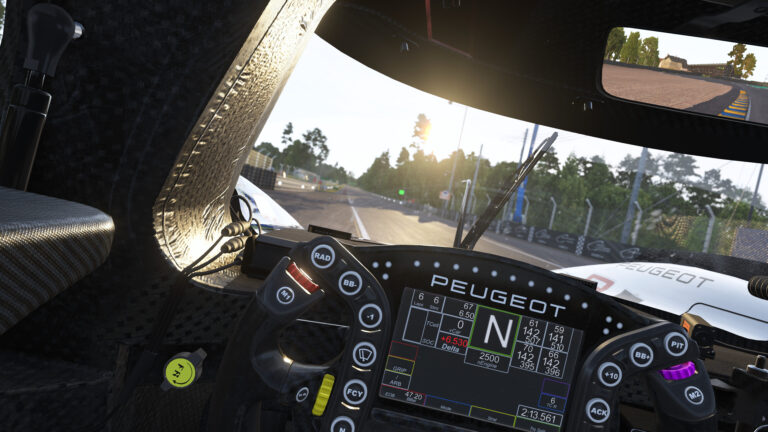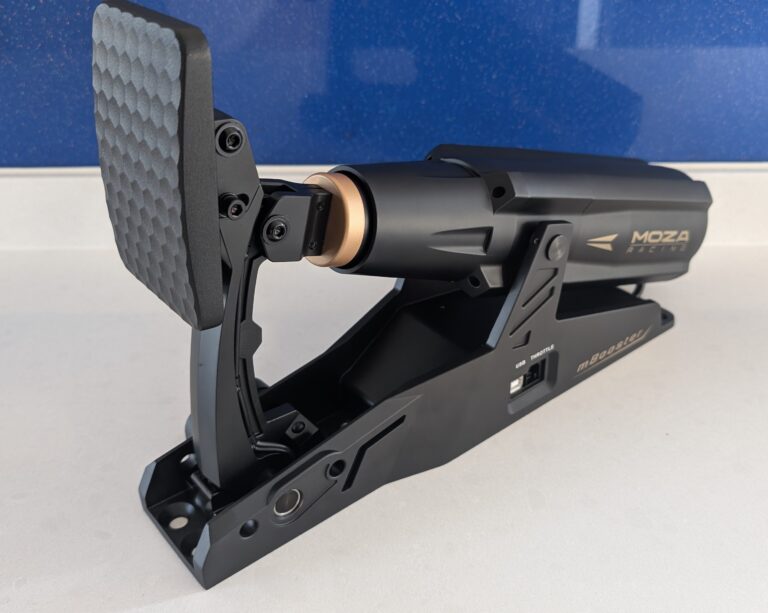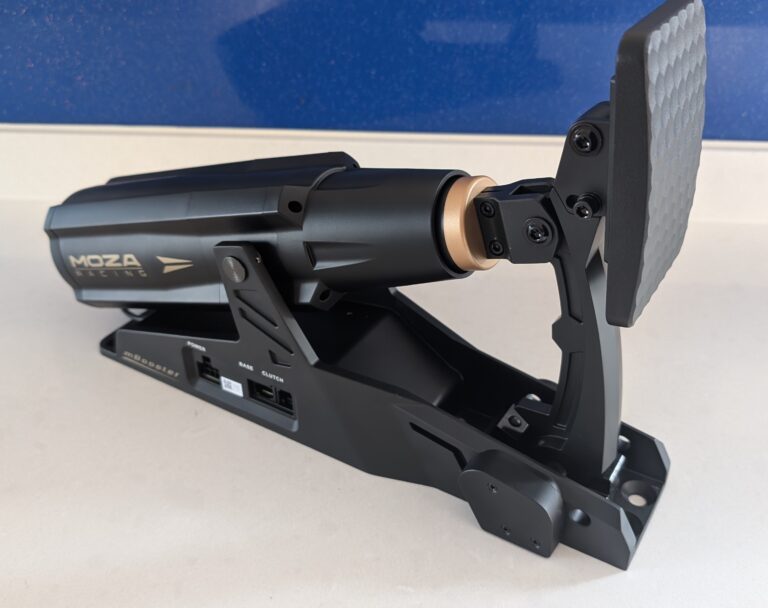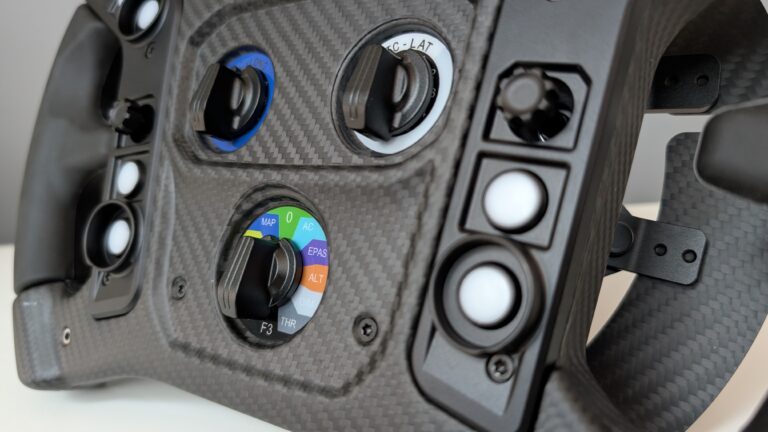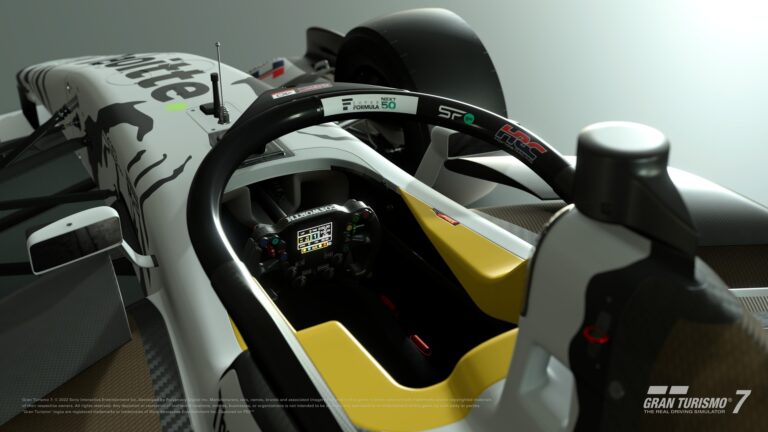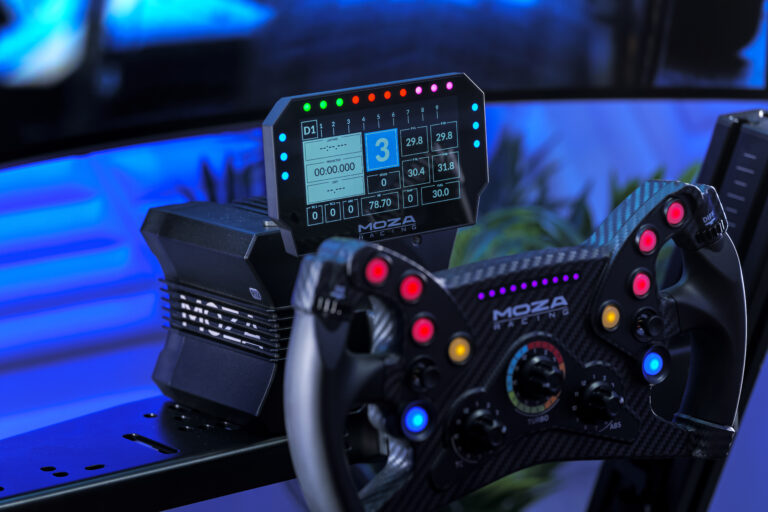Featured image: my Radical SR3
Bit of a spoiler: It’s not a question of “which is better”.
I first came into sim racing because I was looking for ways to learn new circuits before I went racing there. The approach of using a simulator to learn real-life circuits works. At Anglesey (via a mod I found for Assetto Corsa) I’d practised sufficiently in the simulator prior to the race weekend that my first few laps “in real life” felt eerily familiar, and my 3rd lap was within a second of my ultimate pace. I instinctively knew where the track went on my out-lap. My simulator saved me around a day of expensive testing.
I spent around a year solely using my sim for this purpose, learning and practising tracks, “getting my eye in” and of course, learning and refining the technology I was using. I even learned how to heel and toe using the sim!
When I finally embraced iRacing I found that the similarities between the simulated environment and real-life were quite astonishing. You get the same shot of adrenaline on the grid before lights out, close racing is governed by the same rules of racecraft (although there are fewer silly accidents like we’re all used to in iRacing!) and by the end of the race, you’ve had a workout. If you finish, of course.
I have just finished in 4th place at Le Mans in iRacing in the Porsche GTE RSR but, speaking as an amateur driver, I’m very clear that my “racing career” will never progress to my naively lofty initial goal of going to Le Mans in real life, and I accept that club racing is an brilliant opportunity for me. I’ve invested 6 years of my life learning the art of car handling and racecraft and can, on a good day, more than hold my own and finish well in a competitive race.
I found it really strange to see a tweet from a well-known racing driver belittling the sim racing experience compared to the real-world version. OK, everyone is entitled to an opinion, but I believe any racing driver who doesn’t embrace sim racing and acknowledges it with the respect it deserves is at fault.
There are pros and cons in all comparisons and, I’m sorry to disappoint you – this isn’t strictly a “which is better” issue. They are different sporting disciplines based on similar rules but executed on fundamentally different platforms. But I do believe this: sim racing is just as much a Motorsport as jumping in an LMP2 car and driving a lap of Le Mans.
Sim Racing vs Motorsport
Using my knowledge of both I wanted to write a series of points about the two disciplines to make a comparison:
Sim Racing
- The technical disciplines learned through building a gaming PC, setting up your first sim and getting things working are technical skills that are useful in the real world as they provide technical knowledge that is transferrable into different worlds.
- Your rating in simulations like iRacing’s iR is calculated from your aggregate performance over time which is a much better way to track a driver’s progress over more than one season in a variety of disciplines. It directly and fairly compares you to every other driver in the system.
- Sim racing presents a one-off cost with negligible ongoing expenses – in that the equipment does cost money, but once you own it you can get years and years of life from the equipment. Naturally, some software has a subscription fee, such as iRacing, but this is negligible in comparison and there are lots of “free” tracks and championships to get started with before you start buying cars and tracks
- In fixed-setup racing, the cars are the same. It’s a driver’s race.
- In non-fixed setup racing, you have the opportunity to learn setup and improve your car. If you don’t want that, you can buy setups very inexpensively
- On that note, sim racing helped me improve my setup feedback in a real car

Real World Motorsport
- Extremely expensive – even cheap Motorsport is many thousands per race meeting (a race weekend in a Radical SR3 will cost around £10,000 to do it properly with support, tyres and testing)
- Being fast in real life does not mean you’ll be fast in the sim!
- You’re unlikely to progress to the National championships without backing or a sponsorship operation or just a lot of money
- It’s almost never a fair fight if you’re racing against established teams in a mature championship the setup knowledge and performance improvements on the engine side are extremely difficult to catch up with
- Motorsport takes quite a long time to learn from scratch, which adds more cost!
- You can hurt yourself
- You need a helmet, suit, boots, gloves and fireproof underwear – these all need to be kept in date to pass scrutineering
- Racing is the fun bit but between races there’s not always a great deal to do unless you have a coach or data engineer to hand
- Damage is a problem, as is pre-race prep – the car will always need work before a race meeting and this alone can stretch to 5 figures
- If you have a family it’s difficult being away
- Motorsport requires a lot of motivation which at the beginning is no problem – but when the car’s not working and too many issues are getting in the way and the money’s running out, it’s a different story
- Some championships can be slightly edgy at times because of the competitiveness
- Too many club championships have little proper scrutineering, so the drift away from the technical regs becomes a problem for newcomers. I’ve been in a championship where the scrutineer never turned up to inspect the engines in the sealed cars, one of which went on to win the championship
- You can be a good driver in a bad car and it’s a bitter pill to swallow – Romain Grosjean proved his real credentials when he moved to Indycar
I also think it’s possible to get into a racing car as a good sim racer and adjust. James Baldwin is a very good example of this as he has made the transition to a competitive racing driver well. There are a few examples of other sim racers too like Jimmy Broadbent who has had little trouble driving a Praga around the midfield in most races.
Naturally, there are overwhelming positives to Motorsport that sim racing doesn’t deliver quite as well on, too:
- Your fitness and mental capacity improve hugely
- Huge sense of elation from a good result in real life and the days of celebrations that can follow
- You make a lot of friends for life
- The ability to drive a car at a competitive pace is hard-earned and a skill you’ll never forget
- Trophies are great!
- Track driving benefits your road driving and overall confidence
- Networking between friends can create business opportunities and opportunities to attend socials or other race events
- Returning home from a good race meeting is a great feeling and you’ll sleep well!
- Sim racing doesn’t get close to mimicking the tyre performance in real life which is why, perhaps, track drivers struggle with the transition to sim racing (this point was raised during a great discussion about this article on the Reddit post)
As I mentioned earlier, most real-world drivers use the simulator heavily and fully embrace sim racing as a discipline in its own right. Motorsport is a real-world sport, but sim racing is too – and it takes a huge amount of motivation and effort to get anywhere close to the top split of any championship. Both disciplines are great to be a part of and complement each other well. Enjoy the differences!
Related Articles:
Le Mans Ultimate: How to Drive the LMGT3 and Hypercar
mBooster Review: Moza’s New Active Pedal
Is Moza about to Completely Disrupt the Sim Racing Pedal game?
Mustang GT3 Sim Racing Wheel from VPG – Close Look
Five of the best Gran Turismo 7 track and car combinations
MOZA Racing FSR2 Formula Wheel and CM2 Dash Review
Topic: Sim Racing Simulators


